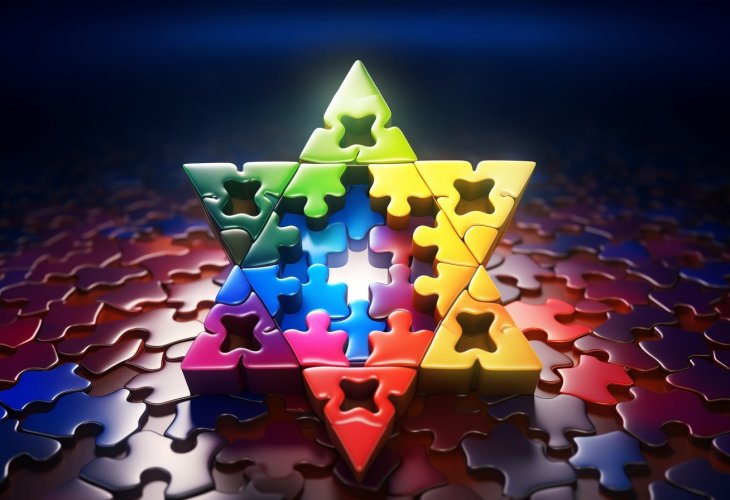Jewish Law
Isn't 'Love Your Neighbor As Yourself' Impossible?
Practical tips for fulfilling this immensely important mitzvah

One of the most famous mitzvot in the Torah is to love every member of the Jewish People, as the Torah commands: "And you shall love your neighbor as yourself" (Vayikra 19:18). Rambam (Maimonides) explains that this mitzvah means that: "Your love and compassion for your brother should be like your love and compassion for yourself, regarding his property, his person, and everything that is in his possession." He adds, "Therefore, one should speak in praise of others and be careful with their property, just as one is careful with his own property and desires his own honor."
Hating a member of the Jewish People (unless he is classified as "evil") violates the negative commandment "Do not hate your brother in your heart" (Vayikra 19:17). In the Sefer HaChinuch it is written that, "Hatred of the heart causes great evils between people, always causing man to fight with his brother and his neighbor ... and it is the most degraded and despised trait in the eyes of all intelligent people."
The mitzvot that relate to our thoughts and feelings are often seen as more challenging than those that only require action (although even those require thoughtful intention). Following are some ideas that can help us to attain the level of genuinely loving all Jews.
Don't ask: Does he deserve it?
If the criterion for loving a Jew is based on 'Does he deserve my love?' then we will never genuinely love our fellow Jews. If we try hard enough, we can find fault with everyone, but the mitzvah commands us to love our fellow Jews "as we love ourselves."
A certain rebbetzin once shared in a class for women that once her husband asked her why she loved him, and she answered, "Just because. I don't have a reason or answer. I simply love you." While this may sound simplistic, it is actually a profound response that reflects the Torah's teaching: Hashem commands us "Love your neighbor as yourself, I am Hashem." Why must we love all Jews? Because Hashem commanded it. Our fellow Jews don't need to earn our love. They are deserving of it, because they are our brothers.
Pray for it
All mitzvot are challenges. We need Hashem's help to overcome the challenges and that means asking for it -- praying to Him. Our Sages stated: "In the way a person wishes to go – in that way he is led" (Makkot 10).
Judge favorably
If we're going to love other Jews "as ourselves," then we'll need to find ways to accept their failings just as we accept our own, even though we slip up sometimes.
We don't have to agree with everything someone does, or believes, in order to accept their way of doing things as valid.
Imagine he's your brother
When your neighbor does something annoying, when your colleague makes a critical comment, ask yourself: "If he was my brother, would I still love him, regardless?"
You might still be annoyed, and maybe disappointed or frustrated, but the connection would still be there.
Study
Listen to classes and learn from books that deal with love for Israel and preventing division and hatred, such as "Guard Your Tongue" by the Chofetz Chaim.
Try giving
There is a well-known principle that giving to others creates a feeling of love towards them. You can try volunteering in your community, or it could be something as simple as resolving to greet everyone with a smile.
Focus during the 'Sim Shalom' prayer
Our Sages say: "The Holy One, blessed be He, found no vessel that holds blessing except peace." Peace is the vessel into which an abundance of blessing is poured from heaven, and if there is no peace, Heaven forbid, then the blessing does not descend.
At the end of the Amidah prayer, one should concentrate during the 'Sim Shalom' blessing that there should be peace among us. In this blessing, we ask that there should be no strife among Jews, and no jealousy, anger, hatred, and competition, and we also ask for blessings for the individual and the community in all aspects of life.
At the end of the Amidah prayer, one should concentrate during the 'Sim Shalom' blessing that there should be peace among us. In this blessing, we ask that there should be no strife among Jews, and no jealousy, anger, hatred, and competition, and we also ask for blessings for the individual and the community in all aspects of life.

